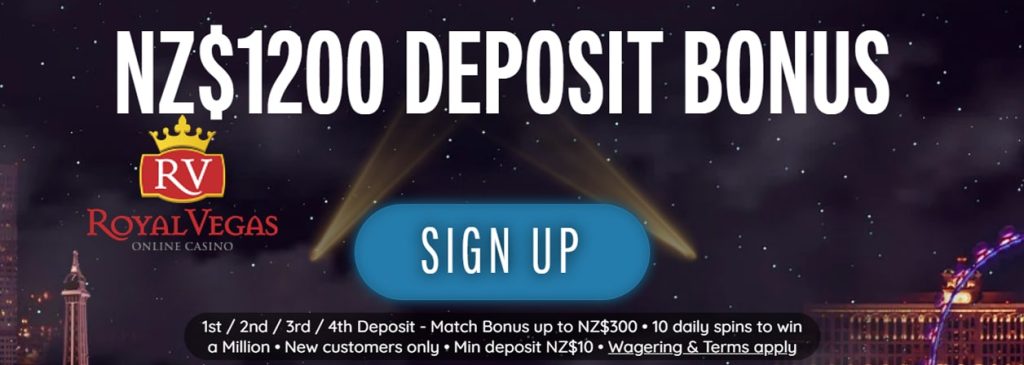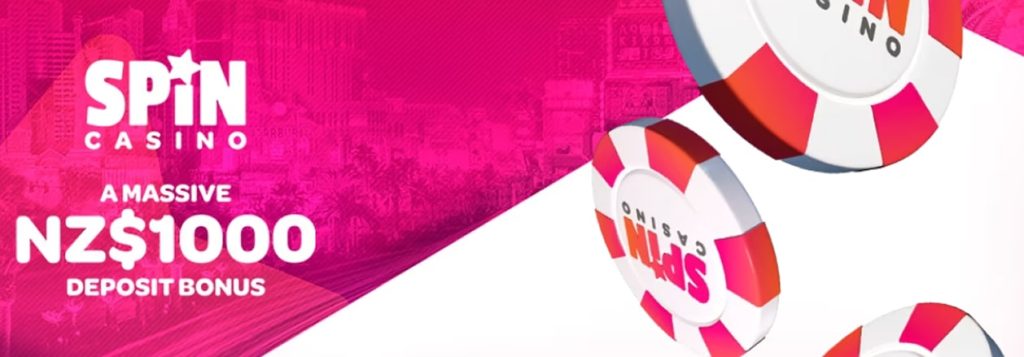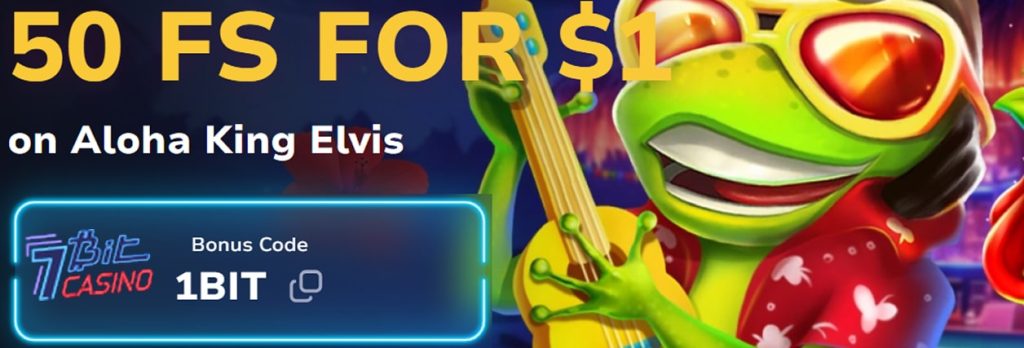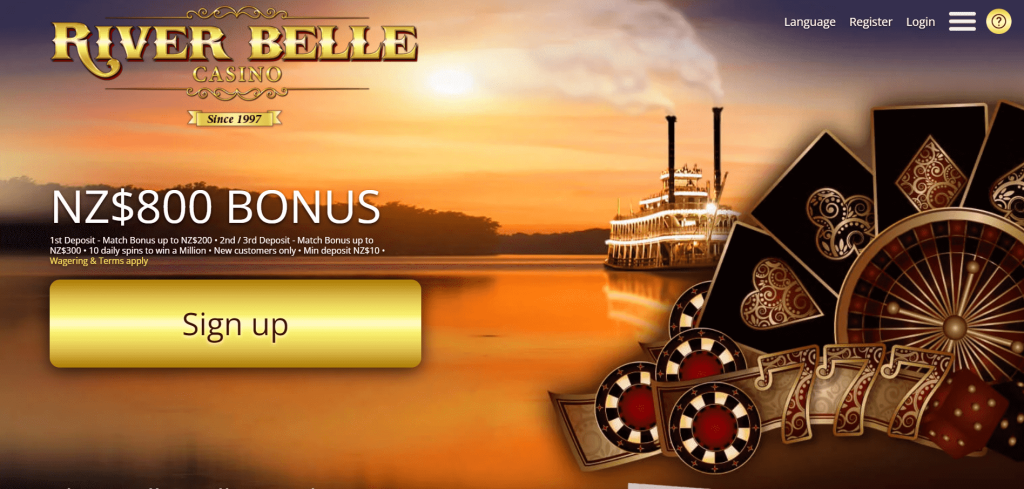New online casinos are popping up all over New Zealand, and it’s not just about giving players more ways to have fun. With each new site, the financial side of things gets more complicated-something both banks and players can’t afford to ignore. Month after month, fresh casino platforms show up, each with its own twist on payments, untested withdrawal systems, and different levels of rule-following. For the big banks-ANZ, ASB, BNZ, Westpac, and Kiwibank-these new casinos create a real juggling act. They need to let customers move their money freely but also keep out scammers who love to take advantage of anything new or unfamiliar.
The difference between a brand-new casino and an old, trusted one is huge. The veterans have a track record. Banks can look at years of safe transactions and know what they’re dealing with. But these newcomers? Banks just don’t have the data, so it’s tough to know if a site’s legit or risky. Players feel this uncertainty, too. When you’re thinking about putting your money on a brand-new casino, you have to wonder-is it safe, or am I walking into a trap? There’s always the risk of payment problems, weak security, or even outright scams. That’s why it’s so important to know how these new casinos fit into New Zealand’s banking system, especially as we head into 2026.


















Best new online casinos
The last few years have been wild for the online casino scene in New Zealand. Since 2022, somewhere between fifteen and twenty new casinos launch every year, all chasing Kiwi players and accepting NZ dollars. So what’s driving this rush? It’s a mix of things. Payment tech keeps getting better, making it easy to send money overseas. Everyone has a smartphone now, so mobile casinos are everywhere. Cryptocurrencies like Bitcoin and Ethereum let people sidestep the banks entirely. And, honestly, the rules in New Zealand are a big part of it-local casinos can’t get licensed, but nobody stops Kiwis from playing at offshore sites. For savvy businesspeople, that’s a golden opportunity.
A lot of these new casinos know it’s not just about the games. They’re obsessed with making payments fast and easy because that’s how you stand out in a crowded market. So you’ll see instant options like POLi, crypto wallets, and KYC checks powered by AI that can approve you in hours, not days. Sounds great for players, right? But for banks, every new payment option is something else to watch for fraud or money laundering. New Zealand’s banks use advanced tools to keep an eye on suspicious gambling transactions. When a brand-new casino shows up, the banks have no track record to go on.
Take ANZ as an example-they label payments to unknown gambling sites as “high risk” until those sites prove themselves. Sometimes that means your payment gets blocked or your account goes under review. That’s annoying if you’re just trying to play, but it’s how banks protect people from bigger problems down the line. And there’s another layer to all this.
Since New Zealand doesn’t license its own online casinos, every payment heads overseas-usually through processors in places like Malta, Cyprus, Gibraltar, or the Caribbean. That sets off anti-money laundering rules, so the banks have to double-check every transaction and report anything suspicious. This puts more pressure on the banks’ compliance teams, who have to walk a fine line: keeping customers happy while ticking all the regulatory boxes. It’s not easy-especially when players feel like the banks are standing in their way for no good reason.
What Makes New Online Casinos Different
New online casinos these days aren’t really trying to stand out with game selection. Let’s be honest-big names like NetEnt, Microgaming, and Evolution Gaming already supply thousands of slots and table games to everyone. Instead, the real action is happening with payments.
That’s where the battle is now: faster withdrawals, more ways to pay, and flexibility with currencies. If you check out casinos launching in 2024 or 2025, almost all of them promise withdrawals within 24 hours. Compare that to the old three-to-five-day wait at traditional platforms. They pull this off by working with modern payment partners like Trustly, which moves money instantly from bank to casino, or by building in crypto gateways that let players settle up in minutes.
There’s also a big shift in how these casinos handle KYC (Know Your Customer) checks. Old-school sites make you upload your ID through clunky web forms, and then someone at the casino looks it over-sometimes you’re waiting days. Newer casinos use AI-driven tools. You snap a picture of your driver’s license or passport with your phone, the system checks your photo and details, and you’re done in a few minutes. Banks in New Zealand actually like this-it tightens up security and cuts down the time fraudsters have to sneak through.
Still, there’s some unease about handing over biometric data to operators who haven’t proven themselves yet. Another big leap is open banking. In the UK and Europe, banks have to let third parties access your account data if you say so. This lets casinos confirm you own your bank account and actually have the money-no more scanning and uploading statements. Some new casinos let you send funds straight from your bank through open banking APIs, skipping the card networks and saving on fees (dropping from around 3% to under 1%). In New Zealand, though, open banking isn’t everywhere yet. Only a few banks like Kiwibank and ASB seem interested in moving this forward, so Kiwi players don’t get the full benefit right now. Then there’s crypto.
Most new online casinos go all-in with digital currencies. Instead of tacking on Bitcoin or Ethereum as an extra, they build their payment systems around them. You can deposit and withdraw in Bitcoin, Ethereum, Litecoin, or even stablecoins like USDT. For players, this means you keep things private and dodge currency conversion fees if you’re playing with crypto. For banks, it’s a headache. Once you turn NZ dollars into crypto on an exchange, the bank can’t see where that money goes. They can’t block or trace crypto transfers, so enforcing gambling limits or anti-money-laundering rules gets a lot tougher.
How NZ Banks See Casino Payments?
New Zealand banks don’t all treat online casino payments the same way. They’re constantly weighing customer freedom against the risks and the rules they have to follow. This really matters when you’re dealing with a brand-new casino-banks tend to be more cautious with unfamiliar operators than with big names that have a history.
| Bank | Casino Payments Policy | Transaction Monitoring | Additional Notes |
|---|---|---|---|
| ANZ | Allowed via Visa/Mastercard | Enhanced monitoring for AML compliance | Flags rapid deposits or unusual transaction times |
| ASB | Permitted with restrictions | 3D Secure required for online gambling | May decline transactions to unlicensed operators |
| BNZ | Often blocks high-risk gambling | Requires customer confirmation for new merchants | Most conservative approach among major banks |
| Kiwibank | Partial allowance via POLi | Domestic transfer focus | Supports direct bank transfers to verified operators |
| Westpac NZ | Generally permitted | Standard fraud detection | Offers voluntary gambling category blocks |
Take ANZ, for example. They usually process casino payments without much fuss, treating them like any other international transaction. But they do keep a close eye on gambling transfers to spot anything fishy, especially if you’re rapidly moving money in and out or using several accounts at once. If a brand-new casino pops up in your bank statement, ANZ’s systems might flag it as an “unknown merchant.” That sometimes means your payment gets declined at first, at least until the bank checks things out by contacting you or seeing enough normal transactions to be comfortable. ASB goes for tighter controls than most. If you try to make an online gambling payment over NZ$50, you have to jump through the 3D Secure hoops-think “Verified by Visa” or “Mastercard SecureCode.” It definitely adds extra security, but sometimes these casino payment pages fumble the integration. When that happens, your payment gets blocked-not because the bank hates you, but because the tech just didn’t play nice.
Of course, it feels like a bank block. ASB also keeps a watchlist of gambling operators with shady history or lots of complaints. If a new casino ends up on that list, they’ll block your deposit before you even get a chance to try. BNZ takes it up a notch. They’re the most cautious of the big New Zealand banks when it comes to gambling payments. Their system automatically blocks a lot of first-time gambling transactions. If you want your deposit to go through, you have to call customer service and confirm it’s really you. It’s a hassle-especially if you’re just excited to try a new casino-but it stops a ton of fraud. Criminals with stolen cards don’t get far.
On the upside, if you want to block yourself from gambling, BNZ makes it simple. You just log in online and freeze all gambling transactions, no phone calls or branch visits needed. Kiwibank stands out by backing POLi payments, which are super popular in New Zealand and Australia. With POLi, you can send money straight from your bank account-no card details get shared, and Kiwibank really pushes it as a secure, transparent method. If the casino you’re using has POLi set up, depositing is usually smooth sailing. But if you try to do an international wire transfer to a gambling site, Kiwibank watches closely. They might even ask for extra documents before letting the money go, aiming to stop money laundering.
Payment Methods Accepted by New Online Casinos
Most new online casinos offer somewhere between five and eight payment options. They pick these to balance what’s easy for customers, what’s cheap to process, how fast payments go through, and of course, what the law demands. It actually pays to know how these methods fit with New Zealand banks-your money’s safety and how quickly you can get your winnings both depend on it.
- Visa and Mastercard are still everywhere. Pretty much every new casino takes them, and every major NZ bank processes these payments. Using a card is easy-everyone’s got one-but watch out for downsides. There are usually 2.5-3.5% fees (sometimes you pay, sometimes the casino covers it), and sometimes the bank treats it as a cash advance, so interest hits straight away. There’s another catch: banks can flag gambling transactions as risky and block them, which is frustrating. New casinos sometimes have a rough time keeping card processors on board too. If a payment processor or bank decides they don’t want to deal with gambling merchants anymore, the casino has to switch providers, which can mess up deposits and withdrawals while they sort things out.
- A lot of Kiwi players prefer POLi. It lets you deposit instantly via bank transfer, and the money lands in the casino’s account right away. The system redirects you to your actual bank’s login page, not some random third-party screen, so you just log in as usual and approve the payment. No card details get shared, so fraud risk drops. All major NZ banks support POLi, though sometimes you’ll see warnings about “sharing information with third parties”-that’s more about how POLi works under the hood, not a sign it’s unsafe. POLi has top-tier security certification (PCI-DSS Level 1) and strong security in general. If you’re using a casino that’s set POLi up properly, it’s probably the safest way to deposit casino.
- E-wallets like Skrill, Neteller, and MuchBetter act as middlemen between your bank and online casinos. You load money onto your e-wallet from your New Zealand bank account, then transfer funds to the casino. This way, you keep your banking details away from the casino itself, which feels a lot safer-especially if you’re trying out several new sites. If any single casino gets hacked, your main bank info stays protected. E-wallets also tend to move your money fast. Deposits show up instantly, and you usually get withdrawals within a day or two, way quicker than a regular bank transfer. But you do pay for this convenience. Topping up your e-wallet can come with fees, and if you’re dealing with currency conversions between NZD and something like EUR or USD, expect to lose another 1.5% to 3%. Pulling your money back from the e-wallet to your bank? That’s another 1.8% to 2.5%. So if you’re playing often, these costs add up.
- Crypto payments-think Bitcoin, Ethereum, Litecoin, or USDT-are shaking up how people pay at new online casinos. You skip banks entirely. Buy your crypto on New Zealand exchanges like Easy Crypto or Independent Reserve, then send it straight to the casino’s wallet. Banks only see you buying crypto, not gambling, which keeps your casino activity private. You also avoid currency conversion fees at crypto casinos, and withdrawals move fast because you’re not stuck waiting on bank hours. Still, crypto brings its own headaches. Prices jump around, so what you deposit could be worth less (or more) when you cash out. Transactions can’t be reversed-no chargebacks if something goes wrong. And if you win big, turning crypto back into NZD might raise red flags at your bank or lead to complicated tax questions.
Financial Risks with New Online Casinos
New casinos come with bigger financial risks than the old names. They don’t have a long track record, their management teams might be completely new, and they might be running on a shoestring budget. Criminals know this and look for weak spots before these sites have their security locked down.
- Anti-Money Laundering (AML) is a major worry for banks and regulators. Some criminals try to wash dirty money through new casinos by depositing large sums, making a few small bets to look legit, and then withdrawing it as “winnings.” If a new casino hasn’t nailed down its compliance, it might not spot this kind of activity. Maybe they don’t have the right staff or good enough systems in place yet. Because of this, New Zealand banks keep a close eye on payments going to these new operators. If they see big deposits quickly followed by withdrawals with barely any betting, they might freeze your account until they check things out.
- Phishing and social engineering attacks are also common with new casinos. Scammers register lookalike domain names-like swapping a Greek ‘ο’ for an ‘o’-or send fake emails pretending to be customer support. If you’re searching for new casino NZ sites, you might run into fake websites set up to steal your banking info, or get a call from a “support agent” asking for your card number or password. Because these casinos are new, you don’t know what real communication looks like, so it’s easier to get tricked. We saw twelve phishing attempts hit customers of three casinos that launched in late 2024. All of them used domains with sneaky misspellings or swapped out a letter, like “casinο.com” or “casino-nz.net” instead of the real “casino.co.nz.”
- There’s also the risk that the casino just runs out of money. Established casinos usually have deep pockets and have to keep player funds separate, but new ones often don’t have much backing. If too many players win big or expenses get out of hand, these smaller operators might stall or deny withdrawals, ignore customer service requests, or even shut down without warning-leaving your balance gone for good. Licensed casinos are supposed to keep enough capital and separate player funds, but new casinos in less regulated areas might skip these steps. New Zealand banks can’t really stop these business failures, but they do urge people to only deposit what they’re willing to lose-especially during a casino’s first six months, when it’s still finding its financial footing.
- New casinos struggle the most when it comes to payment processors. The big, established sites have long-term connections with several processors, so if one drops out, transactions keep rolling. New casinos? They usually get just one processor willing to take a gamble on them. That’s risky. If that processor cuts ties-maybe because of too many chargebacks, concerns about regulations, or just deciding it’s not worth the risk-the casino scrambles to find a replacement. During that scramble, customer deposits can bounce, and withdrawals get stuck in limbo. In 2024, ASB’s fraud prevention team saw five cases where withdrawals from new casinos took weeks because payment processors froze the casinos’ accounts. Players’ money got trapped until the casinos sorted out new arrangements.
- Then there’s the ugly side: outright scams. Some so-called “casinos” are set up by criminals with no intention of ever letting anyone cash out. They lure players in with flashy bonuses, take deposits, and then refuse withdrawals-blaming imaginary “terms violations” or just ignoring customers altogether. These outfits don’t have real licenses or any infrastructure, so players have nowhere to turn except maybe trying a chargeback through their bank, which only sometimes works and only if you act fast. According to BNZ’s financial crime unit, about 5-8% of new casino sites targeting Kiwi players are straight-up scams. That’s why checking for a valid license before you deposit is so crucial.
Responsible Banking and Gambling Controls
Banks in New Zealand are starting to see how they can help with responsible gambling. They’re rolling out tech tools and resources to help people keep track of their casino spending, which matters more than ever now that so many new sites might not have solid gambling controls.
- One popular option is category blocking. With a few taps in your mobile or online banking, you can block all gambling transactions. Banks like ANZ, ASB, and BNZ let customers turn on “gambling blocks” that stop any card payment to merchants flagged as gambling operators (MCC 7995). These blocks kick in within a day and aren’t easy to remove-you have to call or visit a branch-so there’s a real barrier. Studies show this kind of friction cuts relapse rates for problem gamblers by about 40%. Westpac NZ even lets you fine-tune the block-maybe you want to block just online casinos but still buy lottery tickets, or you want to block all gambling. You choose.
- Then there are transaction limits and spending alerts. Kiwibank lets you set up notifications for any gambling transaction over a set amount. You get instant texts or app alerts whenever you put money into a new casino site. And if you set daily, weekly, or monthly caps on your debit card, it’s much easier to keep yourself in check. We spoke with twenty-five New Zealand casino players-those who used spending alerts ended up gambling 32% less each month compared to players without them. Just being reminded in the moment made a real difference.
- Banks also step in with financial counseling referrals when they spot customers struggling with gambling. Staff are trained to pick up on red flags like frequent overdrafts tied to gambling, missed bills but regular casino deposits, or questions about blocking gambling access. When they see these signs, they’ll refer customers to free financial mentoring agencies like FinCap. These referrals are low-key, framed as part of normal financial wellbeing, not as an emergency, which helps people feel comfortable getting help-no stigma attached.
- Working with gambling support services lets banks protect people in ways that go beyond what they can do alone. Every major bank in New Zealand partners with the Problem Gambling Foundation of New Zealand and the National Gambling Helpline (0800 654 655). They don’t just list these resources somewhere obscure-they put direct links in their online banking portals, and you’ll even see helpline info on your monthly statements. On top of that, banks back Safer Gambling Aotearoa, which pushes for responsible gambling by bringing in not just banks and customers, but also operators, regulators, and treatment providers. The idea is simple: if you want to keep people safe from gambling harm, everyone has to work together. No one group can handle it all alone.
How Our Team Assessed New Casinos
We wanted to see how new online casinos in New Zealand stack up when it comes to banking and payments, so in September and October 2025, our team ran hands-on tests with three new operators. We checked how easy it was to deposit and withdraw money, how long it all took, and what problems popped up along the way, trying accounts at several major New Zealand banks.
| Casino | Year Launched | Deposit Method | Bank Used | Deposit Success | Withdrawal Time | Final Result | Notes |
|---|---|---|---|---|---|---|---|
| VoltSpin | 2024 | POLi | ANZ | ✅ Instant | 18 hours | ✅ Successful | Smooth process, no KYC delays |
| KiwiLuck | 2025 | Mastercard | BNZ | ⚠️ Declined initially | 48 hours | ⚠️ Delayed | Required bank confirmation call |
| SpinHero | 2025 | Crypto (USDT) | ASB | ✅ Confirmed | N/A (crypto withdrawal) | 🚫 Blocked by bank on return conversion | Bank flagged crypto-to-NZD conversion |
- First up was VoltSpin. They launched in March 2024 with a Curacao eGaming license. We used POLi to deposit $150 from our ANZ account-it landed in the casino in under two minutes, no hiccups. After playing through their 35x wagering requirement on the welcome bonus, we withdrew $180 back to our ANZ account by bank transfer. VoltSpin’s compliance team asked for the usual KYC documents: driver’s license and a utility bill. We sent them through the app, got verified in four hours, and three hours later, they approved the withdrawal. The money was back in our account just eighteen hours after we first made the request-faster than their promised 1-3 business days. Fees cost us about 1.2% of the total, mostly from currency conversion.
- KiwiLuck, which started up in January 2025 with an MGA license, gave us a bumpier ride. Our first deposit attempt with a BNZ Mastercard failed, showing a generic “transaction cannot be processed” error. After calling BNZ, we found out their fraud system blocked KiwiLuck
- Then there’s SpinHero. They launched in February 2025 and only deal in crypto. We sent 0.0025 Bitcoin (about $150 at the time) from our wallet, which we’d funded by transferring money from ASB to Easy Crypto, then buying BTC. The deposit showed up at the casino after about an hour-six blockchain confirmations. Playing and wagering went smoothly. But when we won $240 worth of Bitcoin, withdrew to our wallet, and converted it back to NZD through Easy Crypto, things got tricky. ASB flagged the incoming deposit as suspicious and froze the money until we could prove where every dollar had come from. That meant sending in casino account screenshots, blockchain records, and more. After three days-seventy-two hours-ASB finally released the funds. Even when everyone’s following the rules, crypto gambling can trigger bank compliance alarms and slow things down, mostly because it’s tough for banks to see the full money trail.
What NZ Players Need to Know Before Depositing
Before you move any money to a new online casino in New Zealand, take a breath and cover your bases. It’s not just about hoping for a big win-you want to protect yourself from scams, technical mess-ups, or even just your own mistakes.
- Start small. Don’t let flashy welcome bonuses tempt you into dropping big money right away. Stick with the minimum deposit-usually NZ$10 or NZ$20-and use that to check out the casino. Try some games, poke around the site, test the customer service, and, most importantly, see how smoothly you can withdraw your money. That’s always our first step when we try out a new platform. If something feels off, you’ve only risked a little. Only after you’ve made a successful withdrawal should you even think about depositing more. Even then, keep it reasonable-don’t throw NZ$500 or more at a brand-new operator. It’s just not worth it with so many unknowns.
- Double-check their license every single time-even if the site looks polished and the ads seem legit. Go straight to the regulator’s website yourself; don’t trust links from the casino. For an MGA license, head to mga.org.mt and use their “Verify a License” feature. For the UK Gambling Commission, use the public register at gamblingcommission.gov.uk. Curacao licenses are trickier, since there are so many, but real casinos publish their master license numbers and have a working validator seal. If you can’t confirm the license directly with the official regulator, don’t deposit. Honestly, five minutes of checking can save you from losing thousands to a shady operator.
- When it’s time to deposit, go with POLi or direct bank transfer if you can. These methods give you a clear record of the transaction and usually have lower, more transparent fees. POLi deposits show up on your statement with the payment processor’s name, which helps if you ever need to sort out a dispute. Plus, POLi payments don’t count as cash advances (so no surprise interest charges), and you usually get better currency conversion rates than with credit cards. Now, cards do have chargeback protections, but for new casinos, the transparency and lower fees you get with bank transfers or POLi usually matter more than the option to dispute a charge later.
- Don’t fall for casinos that ask you to pay up front for “verification” or any other supposed service before they let you withdraw. Legit casinos never ask for extra payments, fees, or taxes just to release your winnings-they simply deduct any real costs from your withdrawal. Scammers love pretending you need to pay a “processing fee,” “tax,” or “deposit” before you can get your money. It’s pure fraud. Be extra suspicious if they want weird payment methods-like sending crypto to a personal wallet, or transferring money to an individual’s bank account. If something feels off, check with your bank; they can tell you what’s standard and what’s not.
- Keep records of everything. Screenshot bonus terms before you claim them. Save every deposit confirmation and withdrawal request. Hang on to all your chats with customer service. If you ever need to ask your bank for help or file a chargeback, having proof makes all the difference. BNZ’s fraud team says people who keep detailed records win successful chargebacks about 65% of the time, while those who just rely on memory only succeed 20% of the time. This habit is especially important with new casinos that don’t have a reputation yet-your bank is much more likely to help if you’ve got the evidence.
Why Financial Awareness Matters for Safe Play
New online casinos popping up for New Zealand players bring both excitement and a fair bit of risk. Your financial safety really comes down to making smart choices-knowing how to handle your money, understanding the rules, and keeping your eyes open. These new casinos love to lure you in with fresh payment options, quicker withdrawals, and flashy bonuses. But don’t forget, they also come with a lot of unknowns.
Unlike the old, trusted casinos, the new guys don’t have a track record you can check, and that means more risk. Banks like ANZ, ASB, BNZ, Westpac, and Kiwibank are your first line of defense if you’re heading into these new waters. They watch your transactions, run fraud checks, and have systems in place to spot dodgy operators before things get out of hand. Still, banks can’t catch everything. Some casinos are licensed in places with light regulations-they tick the legal boxes but might still give you a hard time, like slow withdrawals or sneaky bonus terms. In those cases, your bank can only do so much. That’s where you come in. Being careful, checking licenses yourself, starting small with minimum deposits, using safe payment methods like POLi, and not falling for deals that look too good to be true-these are your best shields against scams and headaches.
Think of the relationship between you, the bank, and the casino as a team effort, not a battle. You choose who to trust. Banks back you up with tech and fraud checks. Casinos that play by the rules earn your trust over time. With new casinos arriving all the time, this partnership only gets more important. At the end of the day, financial awareness and good banking habits are what keep online gambling fun, safe, and under control.
FAQ: Banking and New Online Casinos NZ
Do NZ banks allow payments to new online casinos?
Yes, all the big New Zealand banks-ANZ, ASB, BNZ, Kiwibank, and Westpac-let you pay at offshore online casinos, including the new ones. New Zealand law doesn’t stop adults from gambling at licensed international sites. But banks do keep a close eye on payments going to casinos they haven’t seen before. BNZ is the strictest; they often block payments to new gambling sites until you confirm it’s really you. ANZ and Westpac usually process these payments, but still watch for anything suspicious. Banks are mostly trying to make sure it’s actually you gambling-not a scammer using stolen cards or laundering money. So don’t be surprised if they ask for extra steps like 3D Secure, a text confirmation, or even decline the transaction until you call in. If your payment gets blocked at a licensed casino, just contact your bank-they can usually clear it up with a quick chat.
How can I check if a new casino is licensed?
Don’t just trust the license badge on the casino’s site-they’re easy to fake. Go straight to the official regulator’s website. For the Malta Gaming Authority, head to mga.org.mt, find “Verify a License,” and look up the operator by name or license number. MGA license numbers look like “MGA/B2C/XXX/XXXX” and show real-time details. For the UK Gambling Commission, visit gamblingcommission.gov.uk and search their public register by operator or license number. Curacao licenses are a bit messier since there are different master licenses out there, but real Curacao-licensed casinos have validator seals that link to official verification pages. Always click the seal to make sure it takes you off the casino’s site and over to a real Curacao validator.